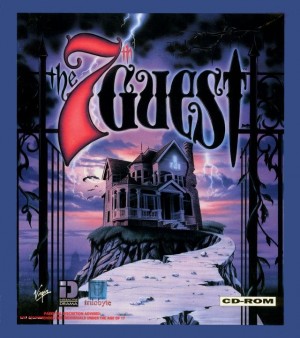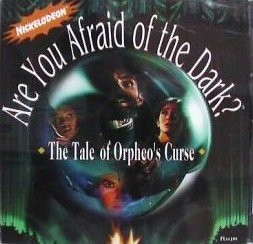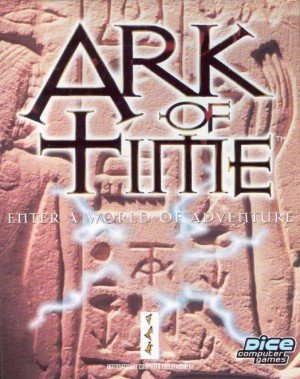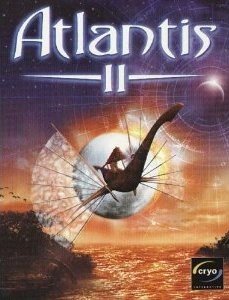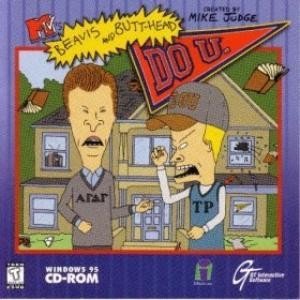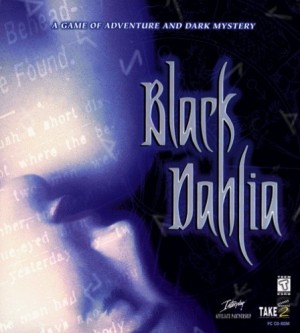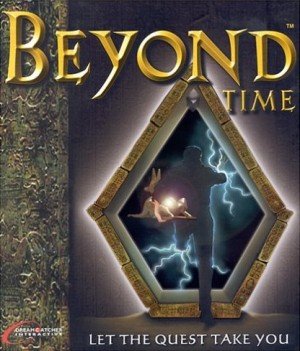Game Quest
If you've been playing adventure games as long as I have, you're probably familiar with the story behind the rise and fall of Sierra On-Line—and possibly still bitter about it. For those who don't know the story, the gist of it is that husband and wife team Ken and Roberta Williams started the company in their garage in the late seventies. They hit it big with King's Quest and launched several other Quest series that went on to define and dominate the graphic adventure genre throughout the eighties and early nineties. One of Sierra's best qualities was the way they communicated with their fans. If you were a Sierra fan in the eighties, you knew the names of every single one of the company's game developers and had probably received a personal letter from Sierra or spoken to someone from the company on the phone at some point. Sierra was like an extended family for adventure game junkies.
Then, in the mid-nineties, Ken and Roberta sold the company. At the time the sale seemed like a smart business decision, but within a couple of years all production on adventure games ceased and the facilities in the Northern California mountains where so many classic adventure games had been born and developed were abruptly closed. Just like that, the studio that spearheaded an entirely new form of gaming ceased to exist.
That's the Sierra story, and give or take a few details, it's also the plot of Game Quest, a novel written and independently published by Leopold McGinnis. The first part of the novel was serialized on the author's website in 2005. Then he self-published it, and is now selling the book for $17 USD -- a little pricey for a paperback, but comparable to a budget adventure game. Worth the money? In my opinion, yes.
Game Quest follows the doomed final years of Madre Entertainment, a homegrown software company nestled in the Sierra Madre mountains. The discerning adventure gamer will recognize dozens of links between the fictional Madre and real life Sierra. The company's husband and wife founders, for starters. In Game Quest they're named Will and Kendra Roberts (get it?), and while he spends his days running the company, she oversees the development of Fantasy Quest, Madre's flagship series. As the book opens, Will has just decided to move all of Madre's corporate operations down to a new facility in San Francisco, so he can focus on the game development side of the business in Madre's home office. It's a good time for Madre—the company is successful, they're churning out well-received games, and the employees are happy. Even if you don't know exactly how the book is going to end, it's clear from outset that everything's running a little too smoothly. Something's about to go very wrong for Will, Kendra, and the Madre crew.
There's more to this book than Sierra's infamous Chainsaw Monday. McGinnis takes us inside the heads of many of Madre's employees, and also into Will and Kendra's family life. Kendra, who's sick of working on Fantasy Quest, is on the verge of a nervous breakdown, talking to herself in text-parser sentences and believing that the buff main character from a popular shooter is following her around the resort during the family's Hawaiian vacation. Will, who considers himself a cowboy of sorts and loves Mondays and wearing his red tie, drives a petition to prevent a local coffee house from being bought out by a big franchise, a valiant gesture that foreshadows the hostile takeover of his own company. And their insecure daughter Heather starts to find herself when she makes a friend over the internet and holds her own in a GLOOM tournament against the head of Ego software, proving that girls can be just as good at violent games as guys. As much as Game Quest is about Madre, it's equally about the Roberts family, which is interesting considering that none of this is based on real Sierra events (as far as I know). It's almost as if McGinnis has two books here: one a fictionalization of Sierra's downfall; the other an original story that grew out of that fictionalization.
Game Quest is a long novel, nearly 500 pages, with a lot of short, punchy chapters that jump from one point of view to another. The book is entirely written in third-person perspective, but this shifts among at least a dozen characters, most of whom are Madre employees. Sometimes these shifts work and sometimes they don't. I liked how McGinnis introduces the reader to many members of the Madre team because this strengthens the impact of the company's downfall, but all the bouncing from character to character prevents the reader from really getting to know any of them. The one character I felt I knew the best by the novel's end was Will and Kendra's daughter Heather—who, incidentally, doesn't seem to be based on any of the real life players in Sierra's drama. Although I admire McGinnis for conveying the collective concerns of a large group of people, all of whom have a unique personal stake in Madre's future, I wish the narrative had been a bit more focused, maybe on only three or four of the characters. Then again, I like to get inside characters' heads. Your mileage may vary.
Even so, I read Game Quest ravenously over the course of a few days, which I hardly ever do. The pacing is good, the plot interesting, and the writing light and occasionally funny. Unfortunately, the shtick I think was meant to be funniest was to me the most annoying aspect of the novel: the cute plays on people's names, game titles, and even brand names. Besides Will and Kendra Roberts, some of the other characters include Art Loel (designer of the R-rated Swarthy Victor games), and Sci-Fi Quest designers Geoff Rogers and Tim Wilco. (If you don't get the joke here, you need to read up on your Sierra history.) If it were just the characters' names, maybe I wouldn't have minded so much, but almost every brand mentioned in this book is made up too, which drew me out of the narrative as I was reminded, over and over, that these characters didn't really exist. Madre is full of employees who drink Kepsi Kola, swing by the MacClownBurger for lunch, and play games like Dan Destroyem and the ever-popular action/adventure Crypt Destroyer in their spare time. Once or twice, these jokes would have been okay, but after a while all the pseudo references started to grate on my nerves, which is a shame because otherwise I really enjoyed the book.
This really seems like a small quibble, though, when I consider how much about Game Quest there is to like. Leopold McGinnis is a good writer. The novel is full of detailed scenes and dynamic characters, and it has a well-structured plot. Game Quest lacks some of the polish of professionally-published titles, but then again, so did many of Sierra's games, and those are still considered classics. This homegrown labor of love is a fitting tribute to the Sierra that used to be, and a great read for anyone with even a little nostalgia for those good old days.



